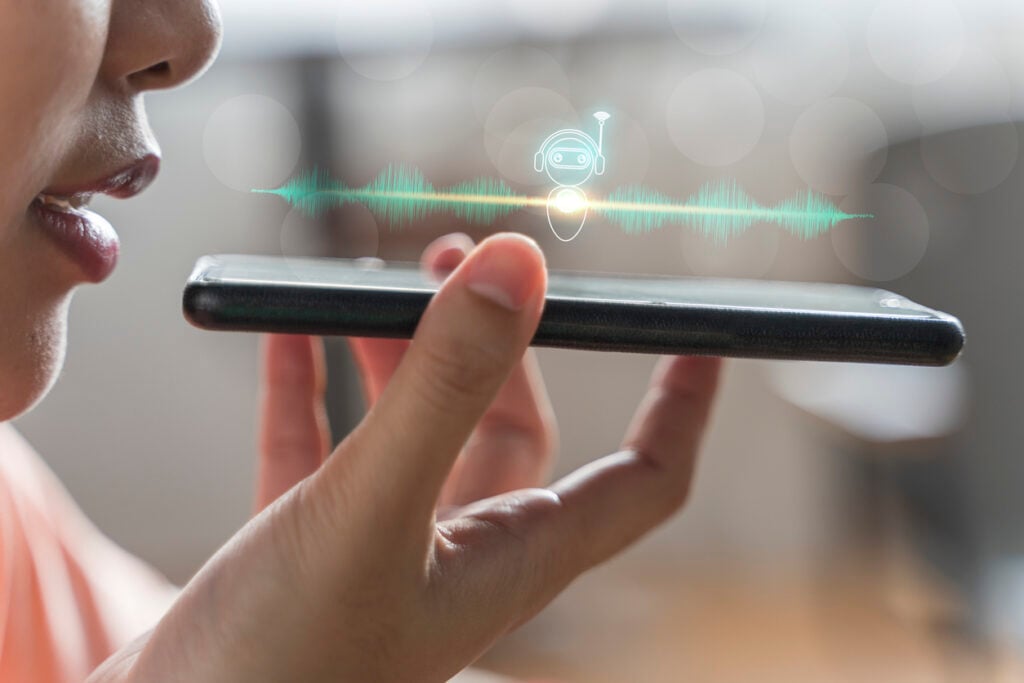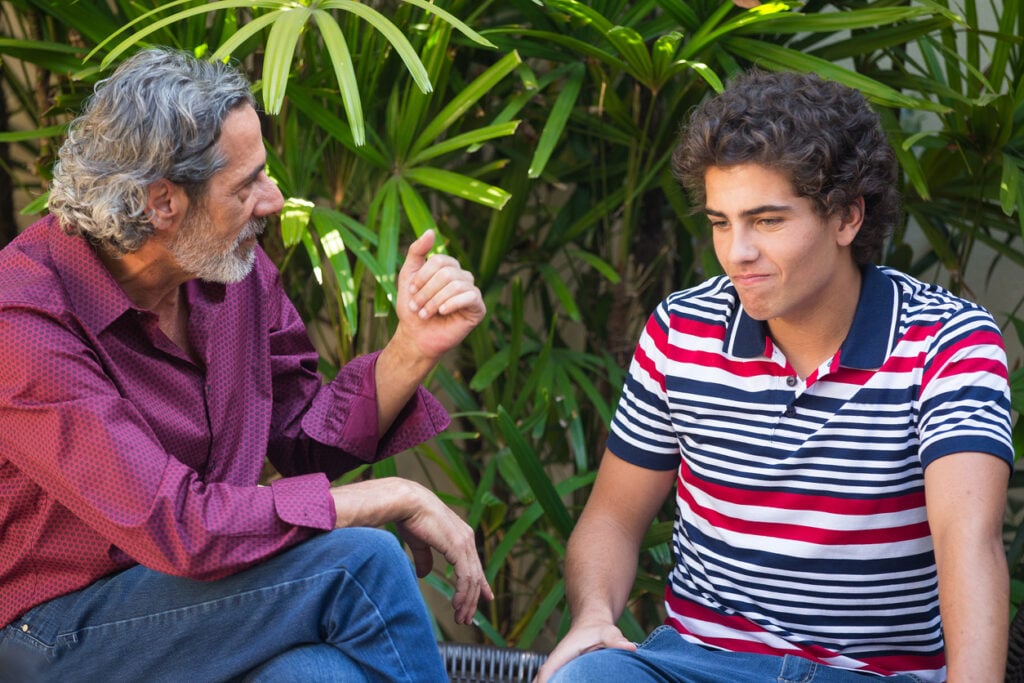You might be polite, but that doesn’t mean you’re current.

Manners used to be about saying please and sending thank-you notes. Now, they’re about things like knowing when to leave a group text or how to navigate a Zoom call without committing a social crime. Boomers who still rely on traditional rules of etiquette might find themselves unintentionally out of step in a world that runs on updated social expectations.
If you think you’re still nailing it, it might be time to check yourself against these new standards that are quietly redefining what “polite” really means.
1. Replying to texts a day later is now considered rude.

It used to be fine to respond to a message the next morning or even later that week. That grace period has evaporated. Today, most people expect at least a short reply within a few hours—especially if it’s someone you regularly talk to. Leaving someone on read sends a message, whether you mean to or not. In a world where our phones are almost always nearby, taking too long to reply often feels like you’re intentionally ignoring someone.
Sure, emergencies and bad days happen, but disappearing from a digital conversation for more than a few hours without explanation can come across as inconsiderate. Even a quick “busy, will reply later” is enough to keep the tone respectful. It’s not about being glued to your phone—it’s about managing expectations in a culture where digital communication often feels just as urgent as face-to-face.
2. Voicemails are no longer a friendly courtesy.

Leaving someone a voicemail used to feel like the polite thing to do. Now it mostly feels like a burden. Younger generations, and increasingly people of all ages, see voicemails as an annoying chore. They have to stop what they’re doing, listen to a sometimes rambling message, and maybe even jot down details. A concise text usually does the job faster and without fuss.
If you’ve been conditioned to leave a voicemail every time someone doesn’t pick up, it might be time to rethink that habit. Most people will see the missed call and get back to you if it’s important. And if you do need to share something more than a sentence or two, a follow-up text summarizing your reason for calling will earn you much more appreciation than a five-minute voicemail.
3. Double-spacing after a period makes you look out of touch.

This one’s purely visual, but it speaks volumes. Boomers raised on typewriters learned to hit the spacebar twice after every sentence. That made sense when fonts weren’t proportional. But modern typography has killed the need for double spaces—and now, using them can peg you as dated before you even finish your sentence. It’s the written equivalent of wearing white socks with sandals.
In emails, texts, and social media posts, that extra space stands out in a weird way. It’s not a major etiquette crime, but it does signal to younger readers that you’re not keeping up. If your goal is clear, current communication, it’s worth retraining that thumb to tap once, not twice. It’s a tiny detail, but in today’s etiquette, details are everything.
4. Forwarding chain emails is basically social spam.

Remember those emails warning of bad luck if you didn’t forward them to ten friends? They’ve gone the way of floppy disks. These days, forwarding chain messages—whether they’re inspirational, prayerful, or fear-inducing—comes off as irritating at best, and misleading at worst. Etiquette now demands that you fact-check and think twice before hitting that forward button.
Even heartfelt messages can feel intrusive when they arrive in a cluttered inbox. People don’t appreciate unsolicited content that looks like it was designed to manipulate emotions or guilt them into sharing. If you want to pass something along, it’s better to summarize it in your own words and ask first. Otherwise, you risk being labeled as the digital equivalent of a pushy street preacher.
5. Correcting grammar publicly is now considered petty.

You might think you’re being helpful by fixing someone’s misuse of “your” and “you’re,” but unsolicited grammar corrections—especially in public—are now seen as condescending. What once passed for a polite nudge toward proper communication now feels like a flex or a power play. Online etiquette favors empathy over nitpicking.
Everyone makes typos, especially on phones. Calling someone out for a mistake doesn’t elevate the conversation—it shuts it down. If grammar truly affects the meaning or clarity, there are gentle, private ways to flag it. But if you’re doing it just to prove you’re right, you’re probably violating a far more important rule: don’t be a jerk. Etiquette today values kindness over correctness.
6. Oversharing on social media is now bad form, not brave.

Social media has made it easy to confuse vulnerability with venting. Boomers who proudly post every political opinion, grandchild photo, or medical update might not realize they’re crossing modern etiquette lines. The new rule? Know your audience—and know when to stop. Too much sharing can feel self-indulgent or tone-deaf, especially when it hijacks someone else’s feed.
Being real is encouraged, but balance matters. Sharing a challenge? Fine. Turning every post into a diary entry or unsolicited life lesson? That’s where people start muting you. Digital etiquette today respects boundaries—both your own and everyone else’s. If you wouldn’t say it out loud to a mixed room of acquaintances, don’t post it for hundreds of online friends to scroll past in silence.
7. Group texts require permission and purpose.

Starting a group text without warning used to be a convenience. Now, it’s a potential etiquette blunder. People are protective of their notifications, and being added to a group chat—especially one that’s overly active—can feel invasive. What seems like a simple way to plan a potluck can quickly become a source of irritation if boundaries aren’t respected.
Modern manners mean asking first, especially if the group includes people who don’t know each other well. And once the chat starts, don’t let it spiral. Avoid endless inside jokes, memes, or personal side convos. Keep things on-topic, and know when to take it private. The best group texts are efficient, short-lived, and most importantly, optional. Otherwise, you’re just another digital noise-maker.
8. Holding doors for others isn’t always welcomed anymore.
Holding the door used to be a gold standard of courtesy. Now, it’s more nuanced. Gender dynamics, personal space, and independence all play a role. While most people still appreciate the gesture, it’s not always received with a smile—especially if it feels performative or forces someone to hurry. Today’s rule is: read the room, not just the rulebook.
If someone’s far behind you, holding the door may pressure them to rush. If you rush ahead to open it, that might come off as patronizing instead of kind. Modern etiquette asks you to be considerate, not performative. Doing something nice is only polite if it genuinely helps and respects the other person’s autonomy—not if it’s done to score invisible points for politeness.
9. Bringing uninvited guests is no longer acceptable.
Showing up with a plus-one used to be a gray area, especially for casual gatherings. Not anymore. Today’s hosts—especially those juggling dietary needs, space constraints, or group dynamics—expect guests to respect RSVPs. Bringing a friend or family member without asking isn’t just a faux pas; it’s inconsiderate. Even if you think “they won’t mind,” the new rule is: always check first.
Etiquette now prioritizes consent and communication. Social dynamics are more complex, and even informal get-togethers can be thrown off by an unexpected arrival. The assumption that more company equals more fun doesn’t fly anymore. If you’re not sure your guest is welcome, ask. Showing up solo when you said you would? That’s what’s truly polite.
10. Assuming others want to be hugged is a no-go.
Physical affection isn’t one-size-fits-all, and hugging without clear cues is no longer considered universally kind. Boomers who grew up with hugs as a standard greeting may not realize that many people now view unsolicited touch as awkward, invasive, or just plain unwelcome. Respecting personal space has become a core tenet of modern etiquette.
This shift isn’t about being cold—it’s about choice. Consent matters in small gestures too. Instead of assuming someone wants a hug, offer a smile or a friendly wave. If the other person initiates, great. If not, there’s no harm in keeping it verbal. Today’s good manners mean leaving space for comfort, not forcing connection on someone who didn’t ask for it.
11. Talking loudly on speakerphone in public is frowned upon.
There was a time when a loud conversation in a coffee shop or store was excused as enthusiasm or age-related hearing. Not anymore. Public etiquette has shifted toward respecting shared spaces, and blasting your speakerphone or conducting voice-to-text messages in public isn’t charming—it’s disruptive. It invades everyone else’s bubble without their permission.
Today, most people are hyperaware of noise pollution. They expect others to be discreet, especially in confined spaces. If you need to take a call, step outside or use headphones. If you must dictate a text, do it quietly. Modern manners revolve around the assumption that other people didn’t sign up to hear your plans, problems, or pet names. Keep it private, and you’ll keep the peace.
12. Email sign-offs need to match the tone.
“Warm regards” might have sounded elegant in a memo from 1986, but today it can feel stiff or outdated depending on the context. The new etiquette standard is tone-matching. A friendly, quick email should end with something equally casual—like “thanks,” “best,” or even just your name. Formal sign-offs can create emotional distance if the message doesn’t call for it.
Boomers especially might default to a tone they consider respectful, but over-formality now reads as cold or overly corporate. It’s not about being unprofessional—it’s about being human. Read the vibe, and don’t let your closing line sound like it was copied from a business textbook. Good manners today mean sounding like a person, not a policy manual.
13. Commenting on someone’s appearance is riskier than ever.
What used to be a compliment can now land wrong. Telling someone they “look great for their age,” have “lost weight,” or “don’t look tired anymore” often implies the opposite of what you intend. The new etiquette discourages unsolicited commentary on appearance, especially when it focuses on bodies, aging, or personal style.
Today’s polite interaction steers clear of assumptions. Instead of focusing on how someone looks, mention how it feels to see them, or ask how they’ve been. That builds connection without making it physical or judgmental. If they bring up a change—like a haircut or weight loss—you can acknowledge it then. Until that moment, silence on appearance is often the kindest rule to follow.
